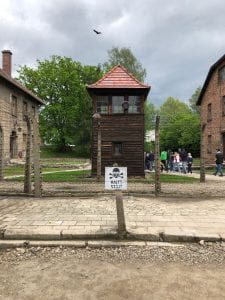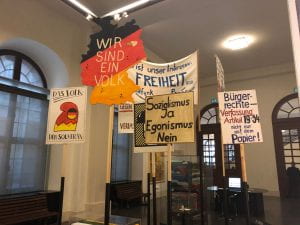My STEP signature project was a study abroad trip in London, United Kingdom with the Global May Great Britain program. It was four weeks, and we learned all about the culture, history, and lifestyle in London and the United Kingdom. We attended a lecture four times a week, and we went on various excursions around London and a few other parts of the United Kingdom to learn about the culture hands-on.
I learned a lot about myself during this trip, especially the fact that I am much more independent than I originally thought. I knew that this trip would be a bit of an adjustment for me, and while it was, I adjusted much quicker than I thought and made friends rather quickly. It was amazing how soon I became accustomed to my living arrangement, daily routine, and London lifestyle in general. I quickly learned the route to class on the Tube, pub etiquette, common terms used in London, and even how to blend in with the locals. I never knew that just four short weeks in a completely new place could completely change my outlook on myself and the world around me.
My view on both London and the United Kingdom changed a lot as well. One major component I learned about London is that it is an incredibly diverse city, and there are so many languages spoken other than English. London welcomes its diversity, and it was interesting to see a blend of so many cultures in one place. I also learned that London is not a good representation of the entire country, and it is much more urban and wealthy than the rest of the United Kingdom. While I was abroad, I also had the opportunity to travel to Edinburgh, Dublin, Paris, and Amsterdam. It was really fascinating to see a glimpse of these cities as well, and note the drastic differences among all of them. I had assumed that all of Europe was a lot alike, but that was certainly not the case. Paris was the busiest and most bustling city I have ever seen, while Edinburgh was much more calm, peaceful, and casual. This trip opened up my eyes to a part of the world I had never seen, and gave me the desire to continue traveling the world and seeing all it has to offer.
One important person from this trip who opened up my eyes to the wonderful culture of London was my professor, Chris Highley. He certainly made the trip memorable for myself and the other students on the trip, as he was always so excited to share his passion for British culture and literature. He always made the material so fascinating, especially learning about the royal family and their history. I never knew I could find a topic so interesting until he explained it. He also took the time to get to know each of us on the trip and learn some of our interests about London going into the trip. Without him as our professor, I don’t think the trip would’ve been as memorable.
One of my favorite excursions from this trip was to a primary school in a predominantly Bangladeshi community in East London. We had a whole week during the trip dedicated to learning about the education system in London, and we compared this school to Eton College. While we were at this primary school, we were able to go into various classrooms and interact with the children. It was so much fun talking to kids from a different country and hearing their perspectives about school, and even about the United States. This experience contributed greatly to my transformation because it really highlighted how diverse London is. Also, although this school is in a poorer area of the city, it was still really nice and a very quality school. We also toured Brick Lane afterwards, which exhibited how much the city valued its immigrant culture.
The opportunity to see other countries outside of the United Kingdom really allowed me to see a bigger picture idea of Europe. Each city I traveled to was vastly different in a way I never expected. Even the difference in currency and which side of the road cars drive on showed me that each country in Europe is vastly different. My trip would not have been the same if I had not had the opportunity to explore more while I was on the other side of the pond. I gained a unique experience from each city that I will forever cherish.
The transformation I experienced on this trip is valuable to me because it taught me how much I enjoy traveling, and how important to me that I continue to do so throughout my life. I learned that I love exploring new cultures and experiencing life in new places. I had never been to a new place for that long in my life, and it was amazing how life-changing those four weeks were. Europe is truly fascinating, and I know that someday I will return. I also learned that I find British culture very fascinating, and now plan to more closely follow the Royal Family.
It was also a valuable experience for me to learn so much about myself and my abilities to be independent and work well in a completely new environment. It was a little scary at first being in a foreign country with new people, but I adjusted so much quicker than I expected. This experience gave me more confidence in myself and better prepared me for the future, both in my career and in life. As a psychology major, taking opportunities to be around new people is always important, and I proved to myself that I can do just that.











 Feria de Abril in Seville
Feria de Abril in Seville My family and I in front of Plaza de España
My family and I in front of Plaza de España Pico de Torreón in Andalucía, Spain
Pico de Torreón in Andalucía, Spain









